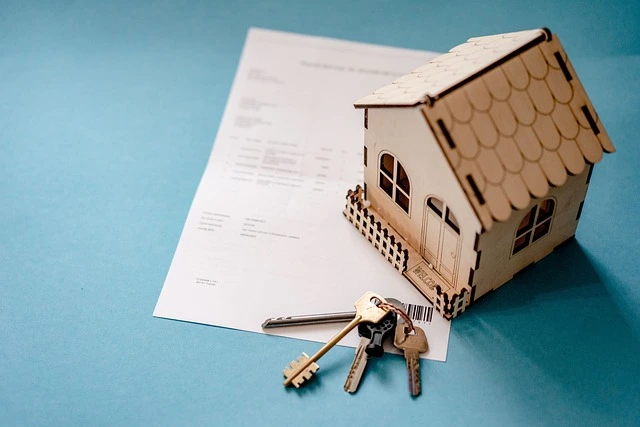Stop Self-Sabotaging Your Finances
No one wants to be broke. I'm sure you don’t. But here’s the thing: you might be unknowingly sabotaging yourself financially. Most of the way we think about and handle our money is unconscious. It wasn’t until I became aware of my own financial habits that I was able to stop living paycheck to paycheck and dig myself out of six-figure debt in just a few years.
So, if you want to get ahead, if you want to stop being poor, here are the five things you need to stop doing right now.
1. Stop Listening to People Who Aren't Where You Want to Be
The first thing you need to stop doing is listening to people in your life who aren’t where you want to be financially.
Have you ever noticed how wealth seems to pass down from generation to generation? It’s rare to see a family that’s rich and then suddenly have their children end up poor, or vice versa. Usually, poverty is passed down just like wealth. And this isn’t by accident. If your parents have money, you’re more likely to have a head start in life. They might buy you a house or get you a job through their connections.
But even if you're born into a family with little money, there’s still plenty of opportunity to rise up, especially if you're hard-working, talented, and resourceful. That’s where mindset comes into play.
Wealthy families pass down more than just money—they pass down a mindset. Rich kids grow up hearing their parents talk about business, investments, and entrepreneurship at the dinner table. They see starting companies, making investments, and creating wealth as normal. They inherit a mindset of abundance.
On the other hand, if you grew up poor or middle class, you probably heard very different advice. I know I did. I grew up hearing that to be successful, you had to work hard, go to school, get a degree (even if it meant taking on debt), get a good job, and then everything would work out. But when I told my uncle I wanted to start a business, he was concerned and advised against it, telling me to play it safe and work my way up in a big company instead.
It’s not that these people don’t mean well—they care about you and want you to succeed. But they’re giving you advice based on their own beliefs and experiences. Before you take advice from anyone, ask yourself: Is this the kind of life I want? Are these the results I want to create? Because if you follow their advice, you’ll likely get the same financial results they’ve gotten.
2. Stop Normalizing Debt
The second thing you need to stop doing is normalizing debt.
It’s crazy how, in a country like America, which is the wealthiest in the world, so many people live in debt. We’re talking about credit card debt, car loans, student loans, mortgages—people often don’t have much financial freedom because they’re drowning in debt. And yet, it’s become so common that it almost feels normal.
It’s common for a young couple to have student loans, a car loan, a mortgage, and maybe even credit card debt—this is considered normal now. But it shouldn’t be. Just because everyone around you is financing everything on credit doesn’t mean you have to as well.
Take my boyfriend, for example. Before he came to America, he never used credit. It just wasn’t a thing in Europe—people paid for things in cash. The debt culture is much bigger in America. When you look around, you’ll notice that the majority of people will likely be paying off some form of debt until the day they die. That’s the status quo—and I want you to rise above it.
I want you to be the person who doesn’t have monthly payments draining your freedom. Be the person who saves and waits until they can afford something in full. Stop tying yourself to future obligations.
3. Stop Being Disorganized With Your Finances
If you don’t want to be poor, you need to get organized with your money.
This is something I struggled with for a long time. I didn’t know how much I owed. I knew it was a lot—six figures—but I didn’t know the specifics. I didn’t know how much interest I was paying, or how much of my payments were going toward the principal. I was living paycheck to paycheck, and I would often overdraft my account because I was afraid to face the truth about my finances.
I had a head-in-the-sand approach, and it was a form of denial. But I realized that if I didn’t know where I stood, I would never know how to fix it. The first step was getting organized—writing everything down, using a spreadsheet, and looking at my finances with my eyes wide open.
This was an empowering moment. Once I understood my financial situation, I could make a plan to improve it. And it’s not just about numbers. It’s also about energy. Money is attracted to those who take care of it. When your finances are disorganized, it’s like you’re not ready to receive more. But when you get organized, you make space for more abundance to flow into your life.
4. Stop Trying to Look Rich—Be Rich Instead
The next thing to stop doing is trying to look rich.
In today’s world, there’s a lot of emphasis on appearances. We see celebrities living flashy lives with mansions, private jets, and expensive clothes. So we assume that’s what being rich looks like. But looking rich and actually being rich are two very different things.
Take Steve Jobs, for example. He wore the same black t-shirt and jeans every day. He didn’t look rich, but he was. He owned one of the most valuable companies in the world. So, when you come into money, think about how you can use that money to build wealth, not just spend it on things that make you look wealthy.
For instance, if you suddenly come into a large sum of money, don’t blow it on vacations or luxury items. Instead, invest it in things that will appreciate in value and generate income, like real estate, stocks, or bonds. That’s how you build real wealth.
5. Stop Being Unprepared for Emergencies
The last thing to stop doing is being unprepared for financial emergencies.
Things like car repairs, Christmas expenses, or unexpected medical bills will always pop up. And if you’re not prepared for these things, they can easily send you into debt. But here's the tough love: These expenses aren’t really unexpected. Cars break down. Christmas comes every year.
So, why not plan for them in advance? Set aside an emergency fund so that when life happens, you're ready. Being proactive is key. Rich people plan years in advance. Poor people react. They wait for things to fall apart before scrambling to fix them.
Start thinking ahead. Build an emergency fund. Set aside money for predictable expenses, like holiday gifts and car repairs. When you’re prepared, you’re not at the mercy of life’s unexpected events.
| Looking Rich | Being Rich |
|---|---|
| Spending money on luxury items | Investing money in appreciating assets |
| Buying new cars, designer clothes | Building a diversified investment portfolio |
| Flashy lifestyle funded by debt | Simple lifestyle funded by real wealth |
| Temporary appearance of wealth | Sustainable, long-term financial growth |
| Focus on status and image | Focus on financial independence and freedom |
Conclusion
Now that you know the five things to stop doing, it’s time to take action. Remember, if you’re doing any of these things, don’t beat yourself up. We’re all on our own journey, and none of us were taught this stuff in school. But now that you know better, you can do better.
Forget about what’s happened in the past and focus on moving forward. You’ve got this. Your future self will thank you.
Other articles for you

If you’ve ever tried to get your savings in order, chances are you’ve failed more than once

What if I told you that with just 10 ETH today, you could build a passive income stream of over $1,800 per month—in just 10 years?

Dividend investing isn’t about being flashy or trendy

If you're serious about learning how to invest, start by understanding the basics—like dividend stocks

How to build a high-quality dividend stock portfolio from scratch

What if I told you there's a way to transform a simple $10,000 investment into a machine that could pay you thousands of dollars in monthly income during retirement?

Understanding Municipal Bonds: A Direct Guide for Smart Investors

Municipal bonds are far from flashy—but that’s their strength

Learn how to invest in REITs effectively, avoid common mistakes, and build a diversified real estate portfolio with long-term passive income potential.

Let’s clear the confusion